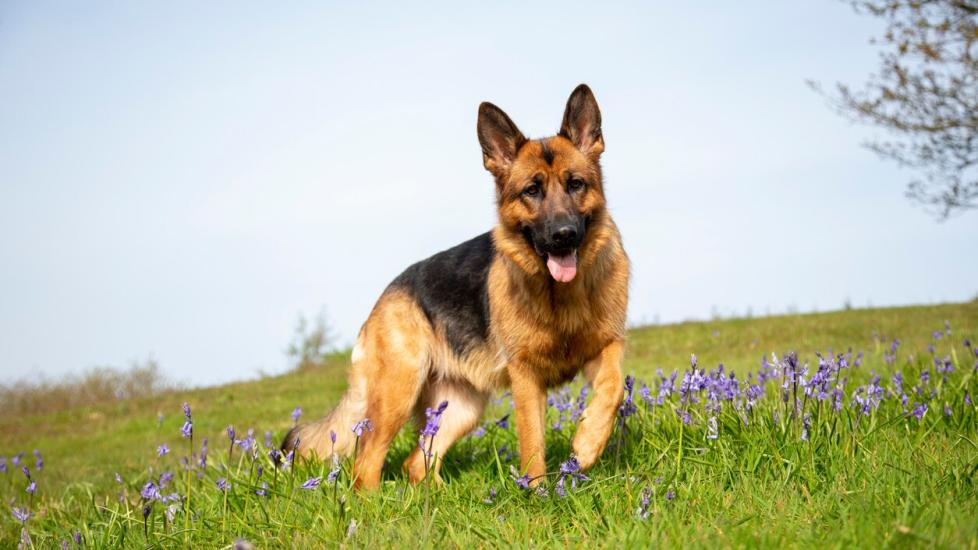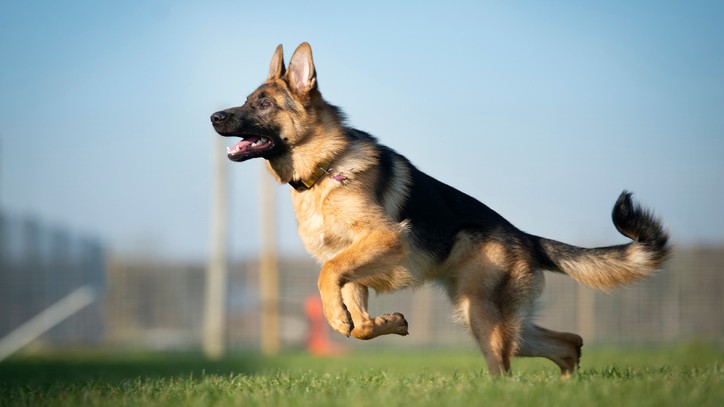
German Shepherd Eye Problems: A Guide for Pet Owners
Share
German Shepherds are a beloved breed known for their intelligence, loyalty, and protective nature. However, like many purebred dogs, they are prone to certain health issues, including eye problems. As a health-conscious pet owner, understanding these potential issues can help you take better care of your furry friend. In this article, we'll explore the common eye problems German Shepherds may face and what you can do to prevent or treat them.

Common Eye Problems in German Shepherds
A few common eye conditions affect German Shepherds. These include cataracts, progressive retinal atrophy (PRA), and pannus. Each of these conditions can impact your dog's vision and overall quality of life.
Cataracts
Cataracts are a clouding of the eye's lens, leading to blurred vision. While cataracts can occur in any dog, German Shepherds are particularly susceptible. Symptoms include cloudy eyes, clumsiness, and difficulty seeing in low light. Early detection and treatment, often through surgery, can prevent further vision loss.
Progressive Retinal Atrophy (PRA)
PRA is a genetic disorder that leads to gradual blindness. It's a degenerative disease, meaning it worsens over time. Signs of PRA include night blindness, dilated pupils, and a reluctance to go outside after dark. Although there is no cure, early diagnosis can help manage the condition and maintain your dog's quality of life.
Pannus
Pannus, also known as chronic superficial keratitis, is an inflammatory condition that affects the cornea. It is more common in German Shepherds than in other breeds. Symptoms include red, irritated eyes, and a pink or tan film over the cornea. While pannus cannot be cured, it can be managed with medication and regular veterinary check-ups.
Preventing Eye Problems in German Shepherds
While some eye issues are genetic, there are steps you can take to minimize the risk and severity of eye problems in your German Shepherd. Regular veterinary check-ups are crucial for early detection and management of eye conditions. Additionally, maintaining a healthy diet and providing your dog with regular exercise can support overall eye health.
Regular Eye Exams
Regular eye exams by a veterinarian can help detect problems early. Veterinarians use special instruments to examine the eyes and may recommend treatments or lifestyle changes to prevent further damage.
Nutrition and Exercise
A balanced diet rich in vitamins and minerals is essential for maintaining healthy eyes. Foods high in antioxidants, like carrots and blueberries, can support eye health. Regular exercise also promotes overall health, which can help prevent eye issues.
When to See a Vet
If you notice any changes in your German Shepherd's eyes, such as redness, cloudiness, or discharge, it's important to see a veterinarian immediately. Early diagnosis and treatment can prevent permanent damage and improve your dog's quality of life.
Red Flags to Watch For
Signs that your dog may be experiencing eye problems include squinting, pawing at the eyes, or sensitivity to light. If you observe any of these symptoms, a veterinary visit is warranted.
Conclusion
Understanding and managing German Shepherd eye problems is crucial for ensuring your pet's health and happiness. By staying informed and proactive, you can help your dog lead a full and comfortable life. For more comprehensive information on German Shepherd health, you might find this Wikipedia page on German Shepherds insightful. Additionally, you can explore more about common German Shepherd health issues on Petzooli.

FAQs
What are the most common eye problems in German Shepherds?
The most common eye problems in German Shepherds include cataracts, progressive retinal atrophy, and pannus.
How can I prevent eye problems in my German Shepherd?
To prevent eye problems, ensure regular veterinary check-ups, provide a nutritious diet, and ensure your dog gets plenty of exercise.
What should I do if I notice changes in my dog's eyes?
If you notice changes in your dog's eyes, such as redness or cloudiness, consult your veterinarian immediately for a thorough examination and appropriate treatment.
This article contains affiliate links. We may earn a commission at no extra cost to you.
